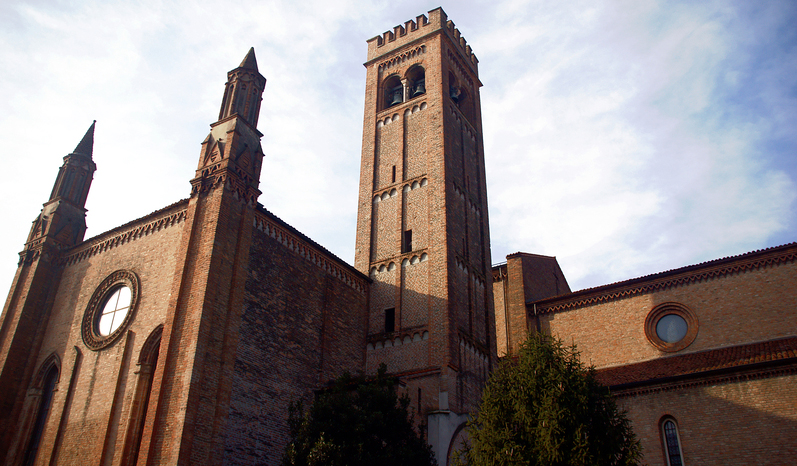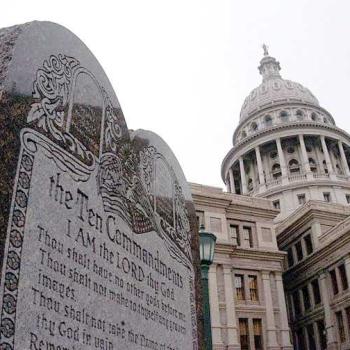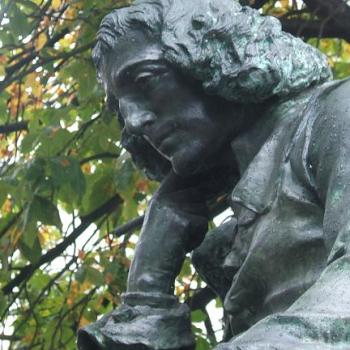There are several Jewish composers among the greats of classical music — Copland, Bernstein, Mahler, Bloch, and many more. But one you may not have heard of was the first Jewish composer to become a notable part of classical music history. He was Salamone Rossi (ca. 1570-1630), a composer of the Italian Renaissance.
Salamone Rossi was the first composer known to compose original music set to Hebrew words in the style of the music of his time, not the traditional style of Jewish liturgical music. His sacred music was set to words from the Psalms, Leviticus, Isaiah, and Jewish liturgy. For example, here he wrote music for the prayer “Adon Olam” (“Eternal Lord”). The words are sung in Hebrew by a double chorus. He is remembered especially for a collection of songs published in either 1622 or 1623 with the title The Songs of Solomon. This is believed to be the first printed collection of Hebrew songs. Here is “Elohim Hashiveinu” (“Oh God, Restore Us”) from that collection.
Salamone Rossi’s instrumental compositions are considered innovative for his time. He was a transitional figure, bridging the Renaissance and Baroque periods. Here is his Sonata quarta sopra l’aria di Ruggiero, composed in 1613.
The Life of Salamone Rossi
Salamone Rossi stepped into history in 1587, when he entered the service of the Duke of Mantua, Vincenzo Gonzaga (1562-1612). The Duke was a great patron of the arts, and the teenage Rossi already was an accomplished violinist (or, possibly, a viola player) and singer. The Duke was known to have many musicians and composers on his payroll. Among these was Claudio Monteverdi, with whom Rossi would sometimes collaborate. However, as a Jew, Rossi was paid for work performed and did not receive a stipend.
For Jews, Mantua was liberal by European standards of the time, although possibly less so than Venice. Jews were allowed to mix freely with non-Jews, and Jewish writers, musicians and artists influenced the city’s culture. Records tell us that in the Gonzaga court Salamone Rossi was not required to wear a yellow badge indicating his status as a Jew, a privilege extended in 1612 by Duke Vincenzo’s successor, Francesco IV. This tells us his work was especially valued. It’s known he also received financial support and protection from prominent members of Mantua’s Jewish community.
Salamone Rossi served the court of Mantua from 1587 to 1628, providing music for weddings, banquets, theater productions, operas, and other events. Rossi became the court’s concert master. Rossi’s sister, who went by the name Madame Europa, was a celebrated soprano who often performed at the court also. She may have been the first Jewish woman to be a professional opera singer.
Salamone Rossi’s Jewish Music
Salamone Rossi’s greatest contribution to Judaism was his 1622 (or 1623) collection, Ha-Shirim Asher li-Shelomo, “The Songs of Solomon.” (Note this title is a play on the composer’s name. The poems of the Song of Songs attributed to King Solomon are not included.) Rossi’s collection contains 33 Psalms, hymns, and other liturgical poems composed for a small vocal ensemble for festive synagogue occasions. After 400 years the collection is still in print, and the songs are still being performed and (now) recorded. And please do enjoy Rossi’s “Halleluyah” (Psalm 146) sung by the Zamir Chorale of Boston.
The use of such nontraditional music was endorsed by Rossi’s friend, Rabbi Leon (Judah Aryeh) Modena (1571-1648). Such music previously would not have been allowed in a synagogue, but in 1605 the Rabbi issued a rabbinic ruling approving such choral works for his synagogue in Ferrara.
Salamone Rossi disappeared from historical records in 1628, the year a war began over control of Mantua that ended the Gonzaga court. It’s believed Salamone Rossi and his sister were both killed in 1630, either in the sacking of Mantua or in the epidemic of plague that accompanied the war. Some Jews of Mantua escaped to the safety of Venice, but there is no record that the composer was among them. According to one account, Jewish musicians of Mantua carried Salamone Rossi’s music with them when they escaped, and they performed Salamone Rossi’s music at the Spanish Synagogue in Venice. Here a video of a recent commemorative performance at that same synagogue.













